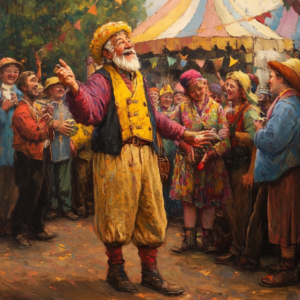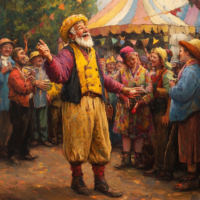The Timeless Craft of Storytelling: From Firesides to the Digital Age
Since the dawn of humanity, storytelling has been an essential thread in the fabric of our lives. Long before written language, stories were told by the flickering light of a fire, passed down through generations to preserve history, impart wisdom, and spark the imagination. These early storytellers, often the elders or shamans of their communities, wove tales of gods and heroes, of love and betrayal, shaping the identity and culture of their people.
As civilizations grew, so did the role of the storyteller. From the epics of Homer to the fables of Aesop, the oral tradition gave way to written words. Ancient scribes became the keepers of knowledge, recording myths, legends, and histories on clay tablets, scrolls, and parchment. These stories entertained and bridged the gap between the divine and the human, teaching moral lessons and offering glimpses of a broader world.

In the Middle Ages, the role of the storyteller evolved yet again. Troubadours and minstrels roamed from village to village, bringing songs and tales to life with music and performance. Their stories of chivalry, romance, and adventure provided an escape from the toil of daily life, while inspiring dreams of heroism and love.
With the invention of the printing press in the 15th century, storytelling underwent a monumental transformation. Books became more accessible, and storytellers found a new medium through which their voices could reach audiences far beyond their immediate communities. The novel, the play, and later, the screenplay, became powerful vehicles for storytelling, each offering its unique way to explore the human condition.
Today, storytelling thrives in countless forms, such as books, movies, podcasts, video games, and blogs like this one. The mediums may have changed, but the essence of storytelling remains the same: to connect, to inspire, and to remind us that we are not alone. Stories have the power to unite us across cultures and generations, to challenge our perceptions, and to ignite our imaginations.
As a writer, I find myself deeply inspired by this legacy of storytellers. Whether crafting tales of romance, adventure, or mystery, I aim to honor this timeless craft and continue the tradition of transporting readers to new worlds and ideas.
So, let us celebrate the storytellers of past, present, and future who have shaped the way we understand ourselves and the world. And to you, dear reader, thank you for being a part of this journey. Together, we keep the spirit of storytelling alive.
